Hello World
- Run code, learn more
- Duration: ~45 Minutes
- Followed By: A Break!

Learning Objectives
- Create Variables
- Data Types
- Yachting For Beginners
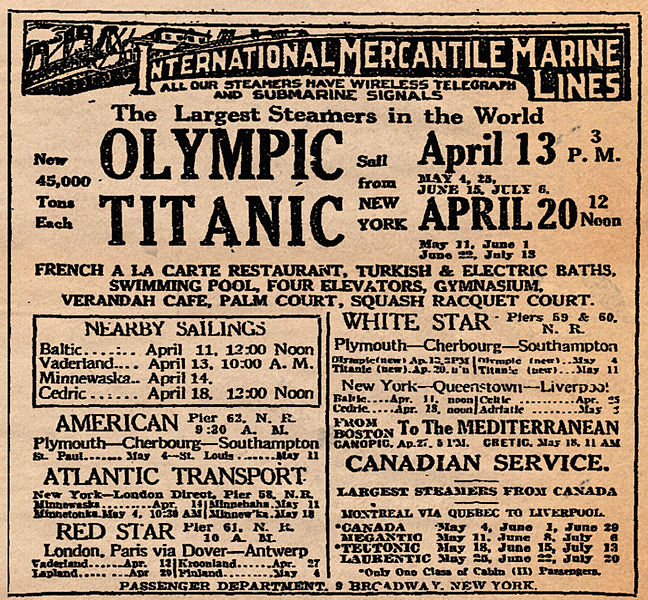
Titanic Ad For Journey From New York To Europe
Hello World
<-is the assignment operator- Variable
hihas a length of one - Variable
hiis assigned the value,Hello World - Everything in R, including this variable, is an object
- It is easy to return the assigned value of a variable
hi <- "Hello World"
hi
[1] "Hello World"
Assignment Conventions
<-was the first assignment operator- Although
=works,<-is the standard - https://www.statmethods.net/management/variables.html
## These are equivalent.
a <- 1
b = 1
Why Be Conventional?
- All languages have conventions
- KNOW them, to read demo code, etc
- Only deviate if you have good reason to do so
- TITR uses Base R conventions, unless otherwise noted
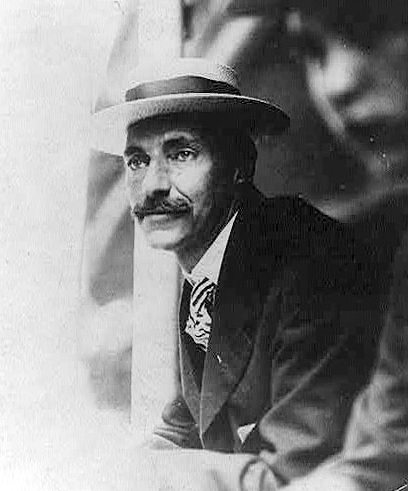
John Jacob Astor in 1909. Richest man to die aboard the Titanic
Assignment Conventions
- Both
<-and=assign variables in the local environment - If you see someone using
<<-run away!- Unless you do not lexical scoping and the difference between local and global environment
- If you do,
<<-is the global assignment operator - https://stat.ethz.ch/R-manual/R-patched/library/base/html/assignOps.html
Checking For Understanding
Text Editor v REPL
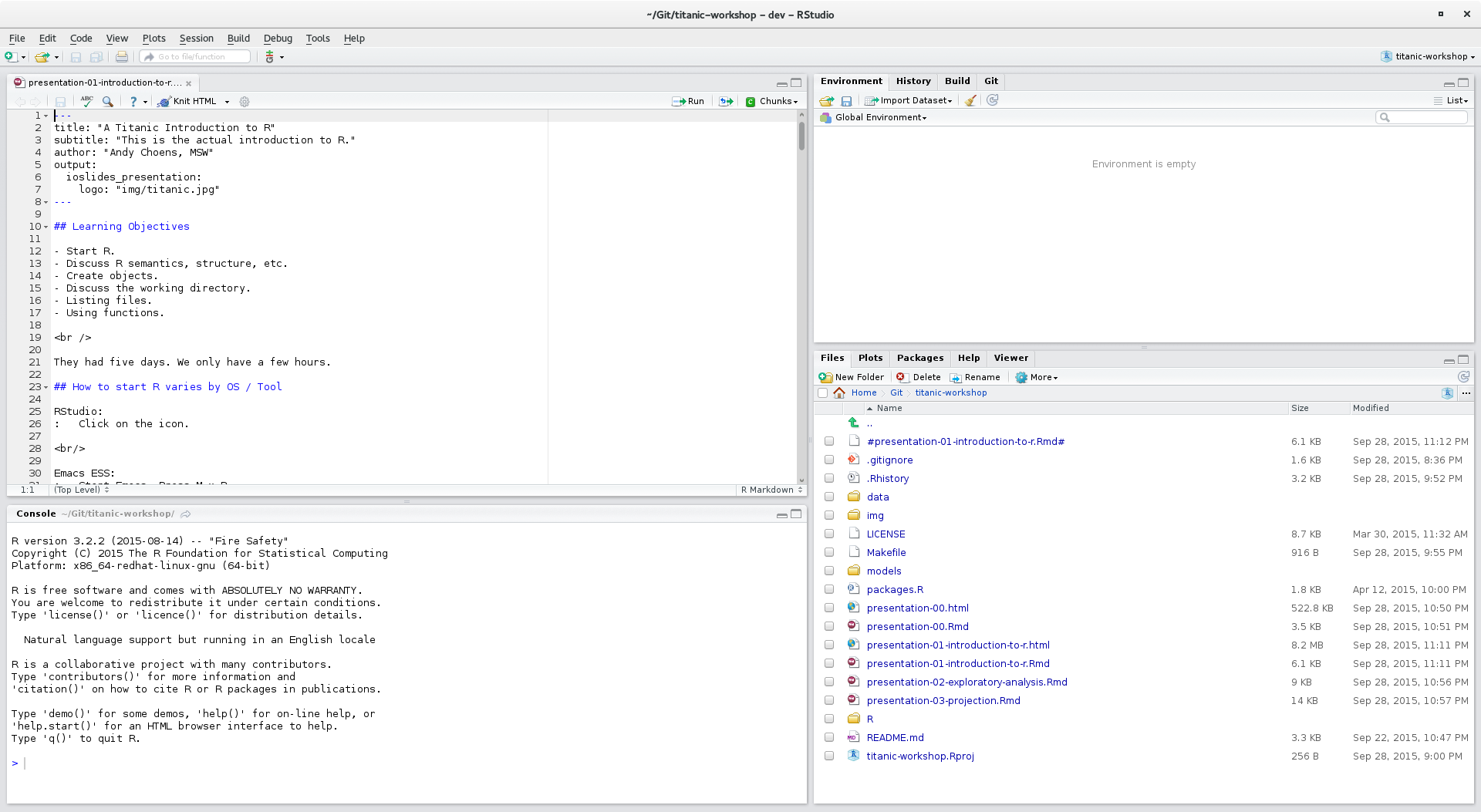
Capitalization Matters
- SAS & SQL ARE NOT case sensitive
- Most languages such as R and Python ARE case sensitive
## In this session:
a ## This works.
A ## - This does not.
Data Types
Introduced Today
R calls this the data's "class"
Our Focus:
- Numeric
- Character
- Logical (Boolean)
Additional:
- Date
- Factor (Later today)
Data Types
Not Introduced Today
This is more of an FYI than anything else
- Integer
- Complex
- Raw
Numeric
R:
- These are numbers!
- For more info:
?numeric
Analogues:
- Python:
FLOAT - SQL:
FLOAT - SAS:
NUM
Numeric
## The passenger capacity of the Titanic.
passenger_capacity <- 2435
## The crew capacity of the Titanic.
crew_capacity <- 892
- Note: Do not use a comma separator in a numeric
Numeric
- Arithmetic is straightforward
- Addition:
+ - Subtraction:
- - Multiplication:
* - Division:
/ - Exponentiation:
^
- Addition:
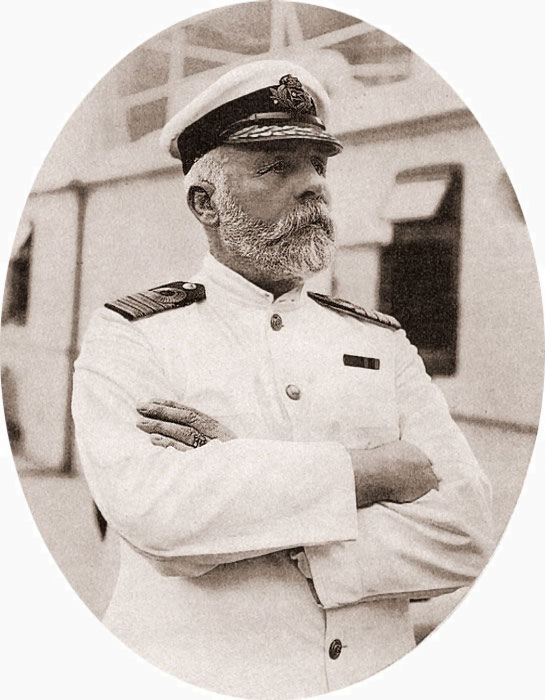 Your Turn!
Your Turn!
- Can you calculate the total capacity of the Titanic?
- What percentage of the total capacity were the staff?
total_capacity <- passenger_capacity + crew_capacity
percent_crew = 100 * crew_capacity / total_capacity
percent_crew
[1] 26.81094Functions
- We use functions to alter or understand our data
- Arithmetic operators are actually special functions
## Another way to do it!
total_capacity <- sum(passenger_capacity, crew_capacity)
total_capacity
[1] 3327
Is Numeric?
- Is a variable numeric?
- is.numeric() returns a Boolean
is.numeric(total_capacity)Returns:
[1] TRUEis.numeric(hi)Returns:
[1] FALSE
 Your Turn!
Your Turn!
Compare the results. Does this make sense?
total_capacity
class(total_capacity)
percent_crew
class(percent_crew)
(The answers are on the next slide!)
 Your Turn!
Your Turn!
> total_capacity
[1] 3327
> class(total_capacity)
[1] "numeric"
> percent_crew
[1] 26.81094
> class(percent_crew)
[1] "numeric"
Characters
R:
- Characters can be of any arbitrary length
(memory dependent) - Quotes:
'foo'or"foo"- Double quotes are the convention (mostly)
- Assignment uses (
<-)
Analogues:
- Python:
string - SAS:
CHAR - SQL:
char(),varchar()
 Your Turn!
Your Turn!
## Let's make some character variables!
title <- "Captain"
name <- "Smith"
## And do something . . . cool . . . with them.
paste(title, name, sep=" ")
[1] "Captain Smith"
Booleans
In R:
TRUEFALSE- Assignment works the way you would expect
Analogues:
- Python:
True, False - SQL: Either
BOOLorINT(There may or may not be an analogue) - SAS: 1 = Yes, 0 = No.
No direct analogue in SAS
Booleans
survived <- TRUE
## OR
survived <- FALSE
Comparison Operators
In R:
- Equals:
==
(Remember,=, is an assignment operator) - Less Than:
<,<= - Greater Than:
>,>= - Not Equal: !=
Boolean Operators ALWAYS Return: TRUE, FALSE OR NA
In Python/SQL
- Identical to R
In SAS:
| Symbol | Mnemonic |
< |
Lt |
<= |
Le |
> |
Gt |
>= |
Ge |
= |
Eq |
~= |
Ne |
Comparisons
# Were there more passengers than crew?
> passenger_capacity > crew_capacity
[1] TRUE
# Were there exactly 1,000 passengers?
> passenger_capacity == 1000
[1] FALSE
## Assign the results to a variable.
answer <- passenger_capacity < 1000
## Doing so returns nothing, unless there is an error.
 Your Turn!
Your Turn!
## Captain Edward Smith was 62 years old when he died.
## Was he older when he died than you are today?
answer <- 62 > ?
answer
## Additional Questions:
## Is 'answer' a Numeric?
## Is 'answer' a Boolean?
Dates
- Not needed today, just demonstrative
- Fact of Life: Dates universally suck
- R is no different
- Like Integers, must be explicitly declared
as.Date()- Why the capital
D? - Dunno
- Why the capital
Dates
## POSIX Compatible dates:
## You can write it as a mm/dd/yyyy, but . . .
## then you have to tell R how to read the date.
capt_smith_dob <- as.Date("1850-01-27")
## I won't make you practice these today.
REPL Gotcha!
- Each line in R's REPL usually starts with:
> - Sometimes a line starts with a
+instead - This is R waiting for you to finish a command
- You failed to close a pair of parens, quotation, etc.
round(9.9
+
 Your Turn!
Your Turn!
## What does this do?
## And how is this different?
c(1,2,3)
Take A Break!
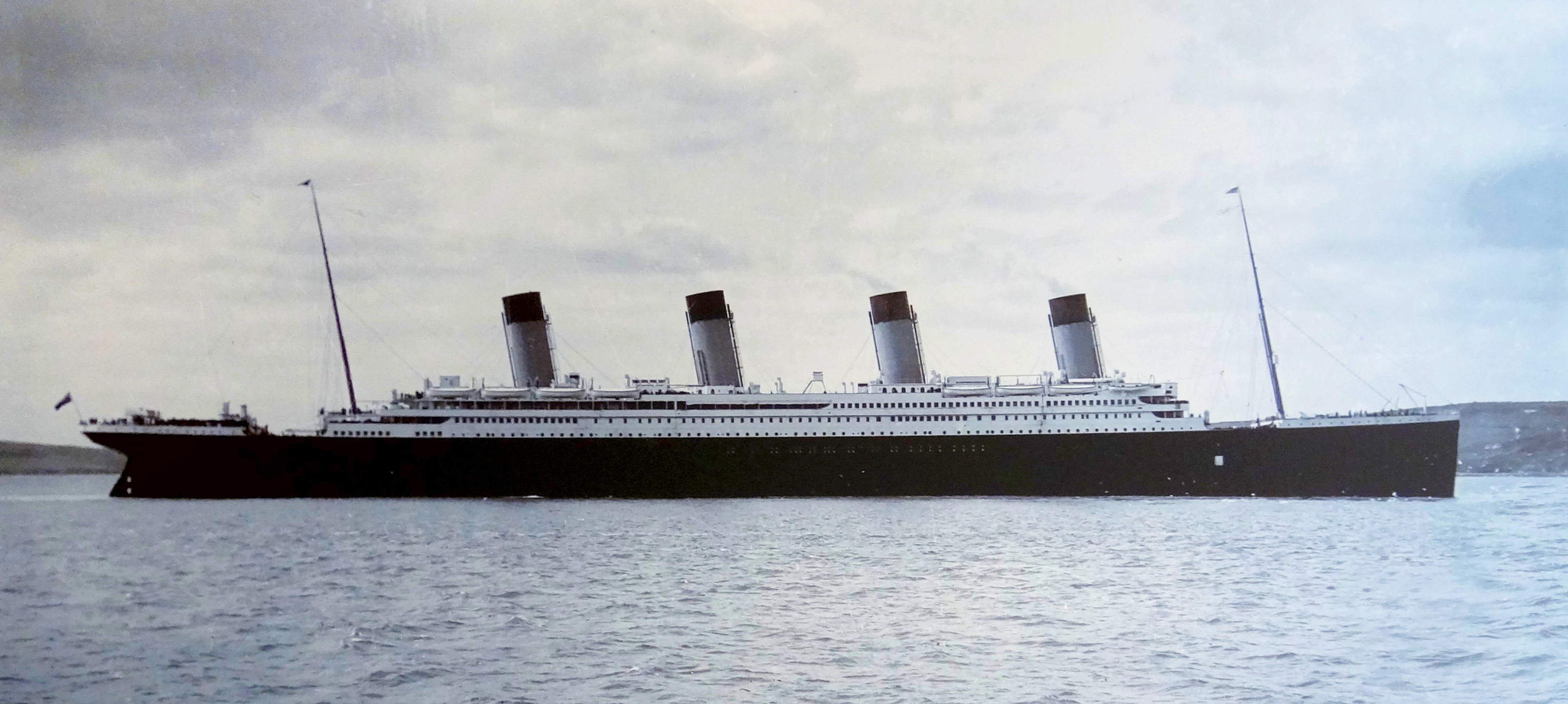
Titanic in Cobh Harbour, County Cork Ireland